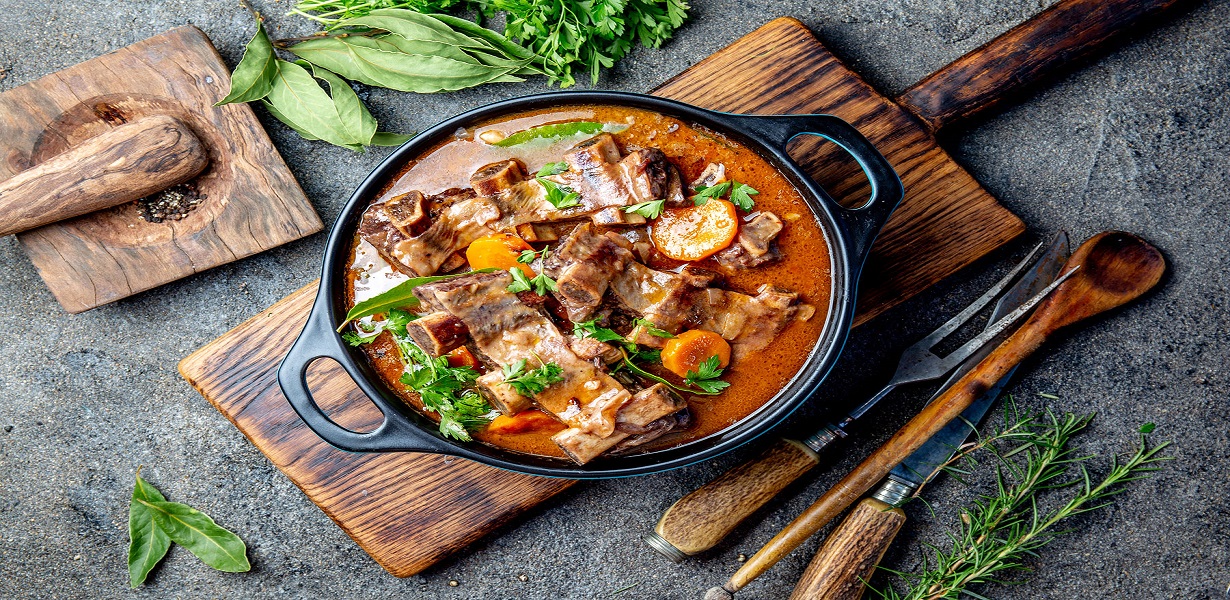
French Cuisine: A Gastronomic Journey through Time and Flavor
- Post
- August 21, 2023
- Fine Dining, Food & Drinks, French Cuisine
- 0 Comments
French Cuisine has enchanted palates across the globe for centuries, transcending boundaries and captivating taste buds with its intricate flavors and rich culinary history. Our exploration delves into the heart of this culinary marvel, uncovering its origins, key elements, iconic dishes, and the cultural significance it holds. Join us on a gastronomic journey through the enchanting world of French Cuisine.
Introduction
Embarking on a journey through the diverse tapestry of French Cuisine is akin to traversing the rolling hills of Provence or strolling along the Seine River on a brisk Parisian morning. This culinary artistry is more than just sustenance; it’s an intricate dance of flavors, techniques, and traditions that have evolved over centuries. From the bustling bistros of Paris to the serene vineyards of Bordeaux, French Cuisine offers a sensorial voyage unlike any other.
The Essence of French Cuisine
French Cuisine is an exquisite blend of tradition, innovation, and regional diversity. At its core lies a commitment to using the freshest, locally sourced ingredients to create dishes that celebrate the essence of each season. This philosophy, known as “terroir,” emphasizes the unique flavors imparted by the land, climate, and culture of a specific region.
The Pillars of French Cooking
French Cuisine rests on the solid foundation of five “mother sauces” that form the basis of countless dishes: Béchamel, Velouté, Espagnole, Hollandaise, and Tomato. These sauces, meticulously crafted from a combination of ingredients, provide a canvas for chefs to paint their culinary masterpieces. The art of creating these sauces, passed down through generations, is a testament to the precision and dedication inherent in French cooking.
Exploring Regional Delicacies
France’s diverse regions boast their own distinct culinary traditions, reflecting the unique ingredients and cultural influences of each area. In Provence, the aromatic symphony of herbs infuses dishes with Mediterranean flair, while the Alsace region’s fusion of French and German cuisines delivers hearty comfort. The culinary marvel of Lyon, often referred to as the “Food Capital of France,” showcases the country’s rich gastronomic heritage.
Iconic Dishes that Define French Cuisine
Coq au Vin: A rustic dish where chicken is braised with red wine, mushrooms, and aromatic vegetables. Its tender meat and bold flavors exemplify the art of slow cooking.
Croissant: The buttery, flaky croissant has become synonymous with French breakfasts. Its origins trace back to Austria, but the French perfected its delicate layers and golden hue.
Bouillabaisse: Hailing from the port city of Marseille, this fish stew captures the essence of the Mediterranean with an assortment of seafood steeped in saffron-infused broth.
Ratatouille: A vibrant vegetable medley originating from Nice, Ratatouille harmoniously combines eggplant, zucchini, peppers, and tomatoes, creating a symphony of colors and flavors.
Culinary Legends and Innovators
French Cuisine’s evolution is indebted to visionary chefs who dared to challenge conventions and redefine the gastronomic landscape. Auguste Escoffier’s meticulous approach to cooking techniques and menu development revolutionized the restaurant industry. Julia Child, with her charismatic presence and dedication to demystifying French cooking for American audiences, left an indelible mark.
The Cultural Tapestry
Beyond its delectable flavors, French Cuisine weaves a cultural tapestry that reflects the nation’s history, values, and way of life. The act of sharing a meal is a cherished tradition that fosters connections, emphasizing the importance of family, community, and taking pleasure in the simple joys of life.
Final Words
French Cuisine, with its intricate techniques, regional diversity, and cultural significance, transcends mere sustenance. It’s a symphony of flavors, a culinary journey through time, and an artistic expression of the French way of life. From the humblest countryside kitchen to the most elegant Michelin-starred restaurant, each dish tells a story, inviting you to savor the rich history and passion that define French Cuisine.
Commonly Asked Questions
Q1. What Makes French Cuisine Unique?
French Cuisine’s uniqueness lies in its emphasis on fresh, local ingredients, meticulous techniques, and a deep respect for culinary traditions. The marriage of flavors, techniques, and presentation creates a dining experience that is unparalleled.
Q2. Are French Cuisine and Fine Dining the Same?
While French Cuisine encompasses a wide range of dishes, from rustic to elaborate, it is often associated with fine dining due to its emphasis on precision, artistic presentation, and attention to detail.
Q3. Can I Experience French Cuisine Outside of France?
Absolutely! French Cuisine’s influence has reached far beyond France’s borders. Many world-class restaurants around the globe offer authentic French dishes, allowing you to savor its flavors and elegance no matter where you are.
Q4. Is French Cuisine Difficult to Master at Home?
While some French dishes require intricate techniques, many are approachable for home cooks. Starting with simpler recipes and gradually exploring more complex ones can help you develop your skills and appreciation for French cooking.
Q5. What’s the Role of Wine in French Cuisine?
Wine is an integral part of French Cuisine, often used in cooking to enhance flavors and create depth in dishes. Each region’s cuisine is often paired with local wines, highlighting the harmonious relationship between food and drink.






